A Blueprint for Transforming the Planet – One Community Weekly Progress Update #232
A blueprint for transforming the planet is being created. It includes open source and free-shared sustainable approaches to food, energy, housing, education, Highest Good economic design, social architecture, fulfilled living, and global stewardship practices. It is being designed to be easy enough, affordable enough, and an attractive enough way of living such that it becomes self-replicating.
- Here’s our project overview
- Here’s our world-change methodology
- Here’s how this becomes self-replicating
- Here’s how we are open source and free-sharing all the do-it-yourself designs
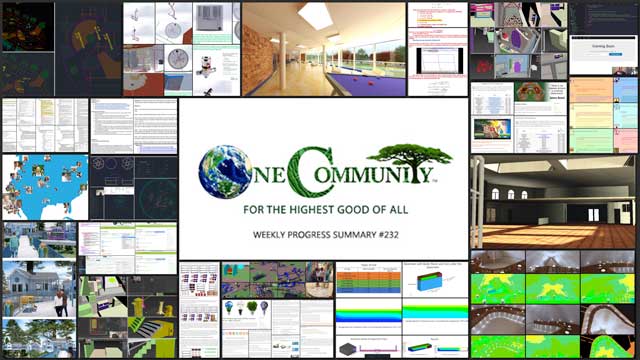
OUR MAIN OPEN SOURCE HUBS
Click on each icon to be taken to the corresponding Highest Good hub page.
One Community’s physical location will forward this movement as the first of many self-replicating teacher/demonstration communities, villages, and cities to be built around the world. This is the September 3rd, 2017 edition (#232) of our weekly progress update detailing our team’s development and accomplishments:
A Blueprint for Transforming the Planet
One Community Progress Update #232
Here is the bullet-point list of this last week’s design and progress discussed in detail in the video above:
A BLUEPRINT FOR TRANSFORMING THE PLANET INTRO: @0:34
HIGHEST GOOD HOUSING: @7:45
- Continued Sketchup design for the open source outdoor areas of the Recycled Materials Village (see below)
- Continued development of the Tree House Village renders (see below)
- Dijimba “Joss” Kabuyi Ilunga completed his 4th week working on the electrical design details for the Vermiculture Bathrooms (see below)
- Hemanth Kotaru completed his 5th week with us by conducting additional Earthbag Village construction research (see below)
- Christian Ojeda completed his 25th week helping with the plumbing details for the heat-recycling Communal Eco-shower, Vermiculture Bathroom, and Net-zero Communal Bathroom Designs (see below)
- Dean Scholz continued helping us create quality Cob Village renders (see below)
- Hamilton Mateca finished a final high-quality render for the Compressed Earth Block Village 2nd Floor Game and Recreation Room (see below)
- Aparna Tandon continued her work on the Compressed Earth Block Village external elements (see below)
- Guy Grossfeld continued helping with the Tree House Village renders (see below)
- Samantha Robinson completed her 5th week working on the interior design for the living structure of the Tree House Village (see below)
DUPLICABLE CITY CENTER: @10:56
- Falgun Patel and the core team created a new 100% Off-grid Energy Setup for Eco-village Construction page (see below)
- Haoxuan “Hayes” Lei continued work on the City Center structural engineering tutorial (see below)
- Dipti Dhondarkar continued with her 48th week of work on the lighting specifics for the City Center (see below)
- Aravind Vasudevan continued his calculations and research for climate battery component of the City Center Heating and Cooling open source hub (see below)
- Vamsi Pulugurtha continued work on the thermal lag research and reports for the City Center Heating and Cooling open source hub (see below)
HIGHEST GOOD FOOD: @12:24
- Added the “Suggested Initial Dry Pantry” section of the Food Procurement and Storage Plan and the “Bulk Dried Goods” section of the Food Self-sufficiency Transition Plan pages (see below)
- Updated the Transition Kitchen with new cost analysis details, additional hexayurt resources, and better formatting and menus (see below)
HIGHEST GOOD EDUCATION: @13:06
- Continued the process of a final proofreading and editing of all 52 lesson plans (see below)
- Working with Sangam Stanczak we also finished behind-the-scenes development of the documentation for the Evaluation and Evolution component and finished 4 rounds to testing the use of the documents (see below)
HIGHEST GOOD SOCIETY: @13:56
- Continued developing the graphic showing where all our collaborators and volunteers are from. This information will be featured in our overview video and on the Team page (see below)
- Ashwin Patil began creation of the Highest Good society search engine version 2.0, integrating suggested edits and missing pages (see below)
- Neha Verma finished her 3rd week helping with the development of the Highest Good Network software (see below)
A BLUEPRINT FOR TRANSFORMING THE PLANET SUMMARY: @15:08
-
-
- How you can most help us right now and how anyone can help
-
CLICK HERE IF YOU’D LIKE TO RECEIVE AN EMAIL EACH WEEK WHEN WE RELEASE A NEW UPDATE
YOU CAN ALSO JOIN US THROUGH SOCIAL MEDIA
ONE COMMUNITY WEEKLY UPDATE DETAILS
HIGHEST GOOD HOUSING PROGRESS
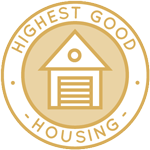 One Community is building a blueprint for transforming the planet through Highest Good housing that is artistic and beautiful, more affordable, more space efficient, lasts longer, DIY buildable, and constructed with healthy and sustainable materials:
One Community is building a blueprint for transforming the planet through Highest Good housing that is artistic and beautiful, more affordable, more space efficient, lasts longer, DIY buildable, and constructed with healthy and sustainable materials:
-
-
- Learn about: Our Upcoming Crowdfunding Campaign
- Learn about the different village models: 7 Sustainable Village Models
- Visit the open source portals for the first two: Earthbag Village OS Hub | Straw Bale Village OS Hub
-
This week the core team continued Sketchup design for the open source outdoor areas of the Recycled Materials Village (Pod 6). We continued designing the cable spool tables and seats (to match existing designs found online) and also designed a bicycle rack that uses recycled tires. We also completed the table and bench made from tires.
The core team also continued development of the Tree House Village (Pod 7) renders shown here, revising and retouching the flower pots and other aesthetic elements.

A Blueprint for Transforming the Planet – Development of Tree House Village Renders – Click to Visit
Dijimba “Joss” Kabuyi Ilunga (Electrical Engineer) completed his 4th week working on the electrical design details for the Vermiculture Bathrooms. This week’s focus was the final breaker panel design, riser detail, and initial cost analysis. We’d say we are now 80% complete with the electrical design details for this component.
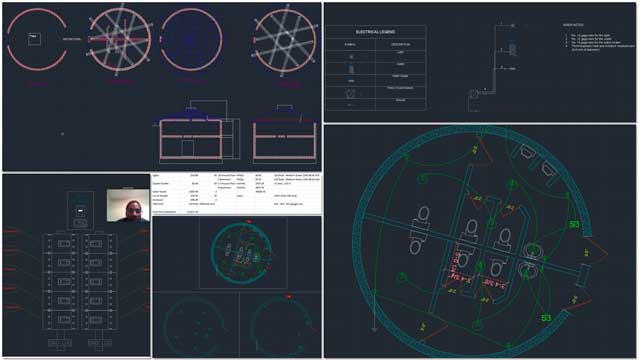
A Blueprint for Transforming the Planet – Electrical Design for Vermiculture Bathrooms – Click to Visit
Hemanth Kotaru (Structural Engineering Masters Student) completed his 5th week with us by conducting additional Earthbag Village construction research. This week’s focus was more french drain and flooring research and you can see a summary of the findings so far here.
And Christian Ojeda (Mechatronic Engineer) completed his 25th week helping with the plumbing details for the heat-recycling Communal Eco-shower, Vermiculture Bathroom, and Net-zero Communal Bathroom Designs. This week’s work was adding shower head, drain pipe, and water heater details. This brings us to 95% complete with the plumbing for the whole Earthbag Village.
Dean Scholz (Architectural Designer) continued helping us create quality Cob Village (Pod 3) renders. Here is update 82 of Dean’s work, continuing to test and develop the lighting from the skylights and windows for the central dining and presentation hall.
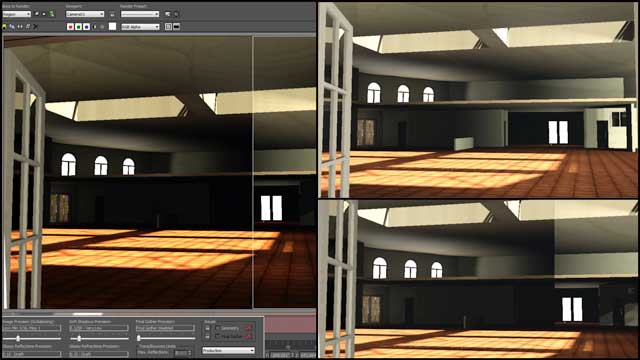
A Blueprint for Transforming the Planet – Continued Help – Quality Cob Village Render – Click for Page
Hamilton Mateca (AutoCAD and Revit Drafter and Designer) also finished his 53rd week helping with the Compressed Earth Block Village design and render details. This week’s focus was finishing this final high-quality render for the 2nd Floor Game and Recreation Room, which you can see here and is now also added to the website.
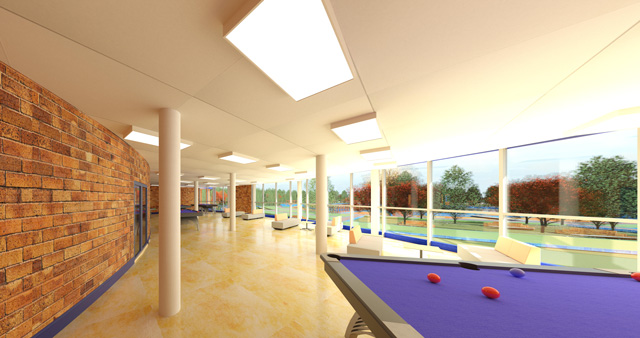
A Blueprint for Transforming the Planet – Final Earth Block Village Render – 2nd Floor – Click for Page
Aparna Tandon (Architect) continued her work on the Compressed Earth Block Village external elements. What you see here is her 32nd week of work, focusing on additional elevation and texture details for the central area between the North and South residential wings.
Guy Grossfeld (Graphic Designer) continued helping with the Tree House Village (Pod 7) renders. This week he took over stairway design for the living structures. You can see the beginnings of his design work here.
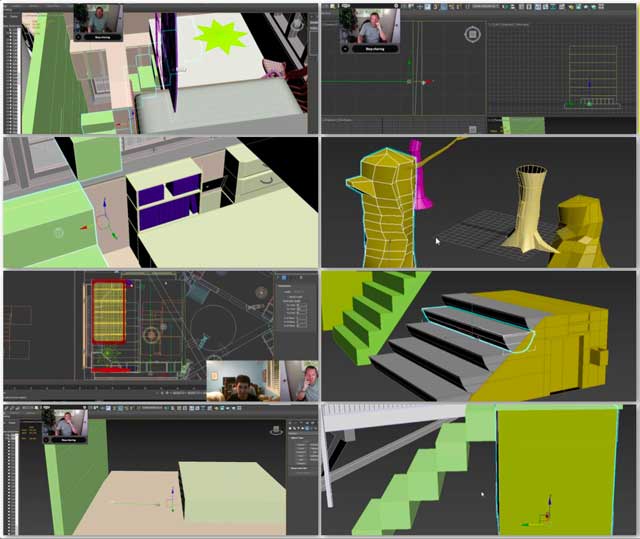
A Blueprint for Transforming the Planet – Continued Help Tree House Village Renders – Click to Visit
Samantha Robinson (3D Designer) completed her 5th week working on the interior design for the living structure of the Tree House Village (Pod 7). This week’s focus, as shown here, was shelving behind the bed on the main floor and custom door design.
DUPLICABLE CITY CENTER PROGRESS
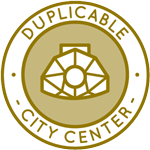 One Community is building a blueprint for transforming the planet through a Duplicable and Sustainable City Center that is LEED Platinum certified/Sustainable, can feed 200 people at a time, provide laundry for over 300 people, is beautiful, spacious, and saves resources, money, and space:
One Community is building a blueprint for transforming the planet through a Duplicable and Sustainable City Center that is LEED Platinum certified/Sustainable, can feed 200 people at a time, provide laundry for over 300 people, is beautiful, spacious, and saves resources, money, and space:
-
-
- Learn about this building and it’s function: Duplicable City Center Open Source Hub
-
This week, the core team working with Falgun Patel (Mechanical Engineer) created a new 100% Off-grid Energy Setup for Eco-village Construction page sharing our work designing the complete energy setup and rollout process for a 100% off-grid eco-village. You can see screenshots of the page here.
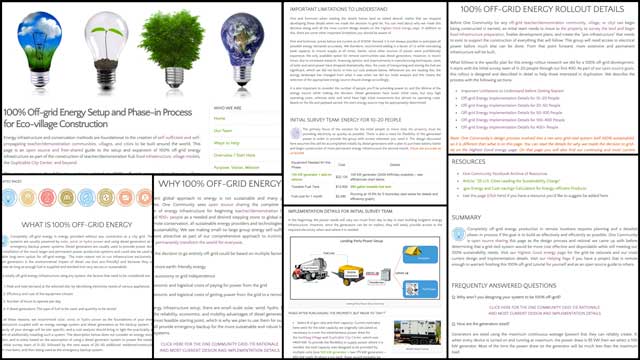
A Blueprint for Transforming the Planet – Off-grid Energy – Eco-village Construction – Click to Visit
Haoxuan “Hayes” Lei (Structural Engineer) continued work on the City Center structural engineering tutorial. What you see here is his 5th week of writing content. This week’s content focus was wind gust calculations and considerations.
Dipti Dhondarkar, (Electrical Engineer) continued with her 48th week of work on the lighting specifics for the City Center. This week’s focus was combining the spotlight lighting plan with the table-top and loft-overhang plan to visualize and test all the lighting together, as shown here.

A Blueprint for Transforming the Planet – Continued Lighting Specifics for City Center – Click for Page
Vamsi Pulugurtha (Mechanical Engineer) also continued work on the thermal lag research and reports for the City Center Heating and Cooling open source hub. What you see here is some of last week’s work and how it ties into the most recent calculations for heat loss and retention by the basement and into the surrounding soil.
HIGHEST GOOD FOOD PROGRESS
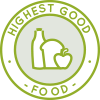 One Community is building a blueprint for transforming the planet through Highest Good food that is more diverse, more nutritious, locally grown and sustainable, and part of our open source botanical garden model to support and share bio-diversity:
One Community is building a blueprint for transforming the planet through Highest Good food that is more diverse, more nutritious, locally grown and sustainable, and part of our open source botanical garden model to support and share bio-diversity:
-
-
- Learn about the structures: Hoop House Hub | Aquapini & Walipini Open Source Hub
- See what we’ll be growing: Gardens & Hoop Houses | Large-scale Structures | Food Forest | TA
-
This week, the core team continued editing the food pages. We added to the “Suggested Initial Dry Pantry” section of the Food Procurement and Storage Plan and the “Bulk Dried Goods” section of the Food Self-sufficiency Transition Plan pages, as you see here.
The core team also updated the Transition Kitchen with new cost analysis details, additional hexayurt resources, and better formatting and menus.
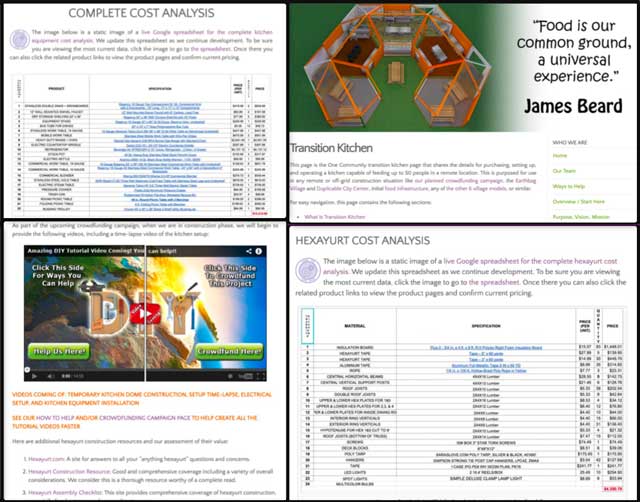
A Blueprint for Transforming the Planet – Transition Kitchen with New Cost Analysis – Click for Page
HIGHEST GOOD EDUCATION PROGRESS
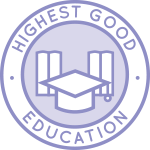 One Community is building a blueprint for transforming the planet through Highest Good education that is for all ages, applicable in any environment, adaptable to individual needs, far exceeds traditional education standards, and more fun for both the teachers and the students:
One Community is building a blueprint for transforming the planet through Highest Good education that is for all ages, applicable in any environment, adaptable to individual needs, far exceeds traditional education standards, and more fun for both the teachers and the students:
-
-
- Learn about the components: Education open source hub
- Learn how the components work together: How to use the Education for Life Program
-
This week, the core team continued the process of a final proofreading and editing of all 52 lesson plans. This week we completed the Reality Lesson Plan and the Fulfilled Living Lesson Plan. This brings us to 50 of 52 finished, which is 96.2% completion.
Working with Sangam Stanczak (Ph.D. and P.E.), we also finished behind-the-scenes development of the documentation for the Evaluation and Evolution component and finished 4 rounds to testing the use of the documents. You can see some of this work here.
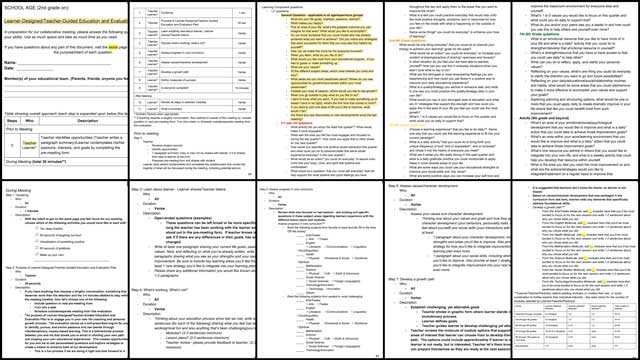
A Blueprint for Transforming the Planet -Documentation for Evaluation and Evolution – Click to Visit
HIGHEST GOOD SOCIETY PROGRESS
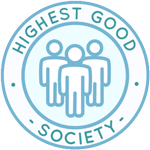 One Community is building a blueprint for transforming the planet through a Highest Good society approach to living that is founded on fulfilled living, the study of meeting human needs, Community, and making a difference in the world:
One Community is building a blueprint for transforming the planet through a Highest Good society approach to living that is founded on fulfilled living, the study of meeting human needs, Community, and making a difference in the world:
-
-
- Read the Highest Good society overview: Highest Good Society
- Learn about the model for fulfilled living and sharing: A Day in the Life
- Learn about the 4 economic models: RBE | For-profit | Non-profit | Entrepreneurship
- Learn about our open source community collaboration and management software: The Highest Good Network
-
This week the core team invested several more hours developing the graphic showing where all our collaborators and volunteers are from. The focus was continuing to add and organize people into their respective locations in the master layer for the video map. This information will be featured in our overview video and on the Team page. You can see here this work in progress.
Ashwin Patil (Web Developer) began creation of the Highest Good society search engine version 2.0, integrating suggested edits and missing pages. You can see some of this work-in-progress here and we’d say this search engine is now 50% complete.

A Blueprint for Transforming the Planet – The Highest Good Society Search Engine – Click to Visit Page
In addition to this, Neha Verma (Software Development Manager) finished her 3rd week helping with the development of the Highest Good Network software. This week’s focus was learning the basics of Ember.js through online tutorials, as shown here.
AND WE PRODUCED THIS WEEKLY UPDATES BLOG – CLICK HERE TO SUBSCRIBE
FOLLOW ONE COMMUNITY’S PROGRESS (click icons for our pages)
INVESTOR PAGES
GET INVOLVED
CONSULTANTS ● WAYS ANYONE CAN HELP ● MEMBERSHIP
CLICK HERE FOR ALL PAST UPDATES
WHAT ONE COMMUNITY IS CREATING
One Community is creating a place to grow together and change the world together thereby Creating a Better World.We are creating a space that helps each other live in integrity with each other and the planet as we strive to be the greatest versions of ourselves. We do this by harmoniously respecting each other, nature, and the rest of our one shared planet.
Our goal is to demonstrate what we feel is the most sustainable, healthy, and fun environment we can create. A place based on compassion, kindness, and collaboration. This replicable community will serve as an example for what is possible.
Throughout our design process we are open sourcing and free-sharing everything needed for construction and replication. This includes what we call “Highest Good” approaches to food, energy, housing, education, for-profit and non-profit economics design, social architecture, fulfilled living, stewardship practices and more. We are creating these resources for implementation as individual components or complete developments called teacher/demonstration hubs. These hubs will help launch additional hubs as awareness and knowledge grow.
BUILDING THE FIRST OF MANY
One Community will be the first teacher/demonstration hub. It will function as an experiential-learning model that facilitates mass participation to address humanity’s most pressing challenges through: A replicable model for expansion, building seven self-sufficient village/city prototypes, becoming the world leader in open-source sustainability solutions, and evolving and expanding ALL aspects of sustainable living.
WHY ONE COMMUNITY IS CREATING THIS
The One Community self-replicating model is capable of creating a sustainable planet within 30 years. We will achieve this by establishing successful teacher/demonstration hubs on every continent. Villages include designs appropriate for each of the five main types of climates. They also include options for even the most challenged economies. These hubs will collaborate with one another, share ideas, resources, and work together as a network to heal the planet. They will also transform the global lifestyle to a more enjoyable, fulfilling, healthy, and sustainable one.
The specifics of how One Community is accomplishing this can be found on the One Community Solution Model to Create Solution-creating Models Page. Research supporting and showing the benefits of a model like this can be found on our Research and Resources Articles Archive.
Even if we don’t achieve our ultimate goal of global transformation, a self-replicating teacher/demonstration model like this will take a relatively short period of time to positively affect millions while inspiring millions more. For One Community residents (the Pioneer Team), the idea of creating and sharing the social and recreational experience with visitors is also fun, exciting, fulfilling, and an additional reason why we are creating this.
SUMMARY
One Community sees the issues of the world as interdependent and interconnected. To address them simultaneously, we are open-source blueprinting a more advanced standard of living by designing holistic, environmentally-regenerative, self-sustaining, adaptable solutions for all areas of sustainability and Creating a Better World . We will model these within a comprehensive “village/city” which will be built in the southwestern U.S. This teacher/demonstration hub will be a place people can experience a new way of living and then replicate it with our open source blueprints: creating a model solution that creates additional solution-creating models.
 One Community
One Community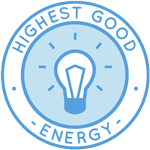
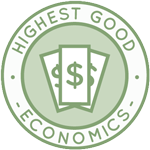
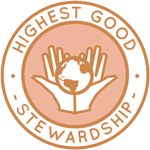
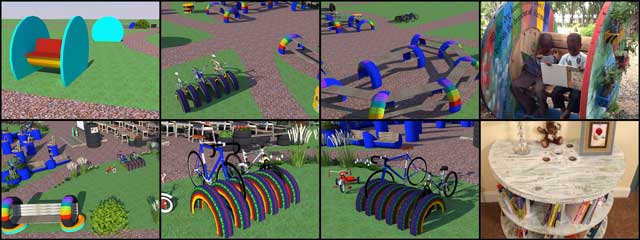
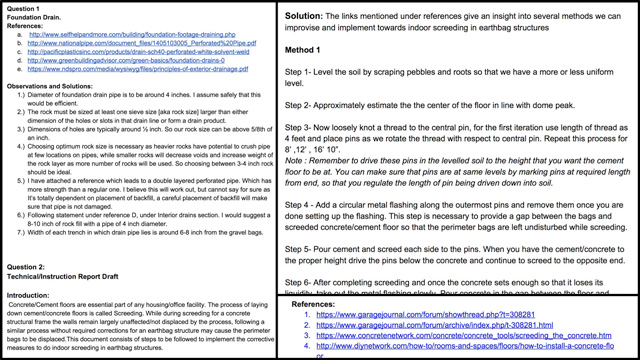
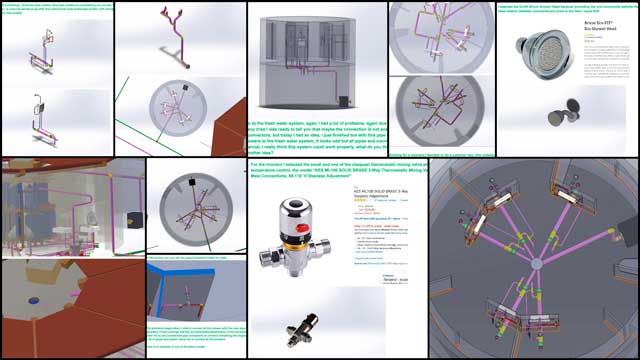

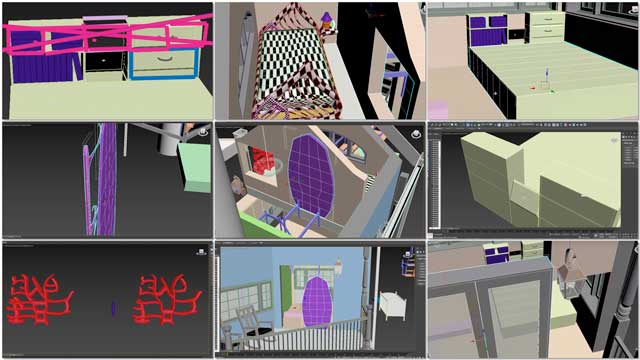
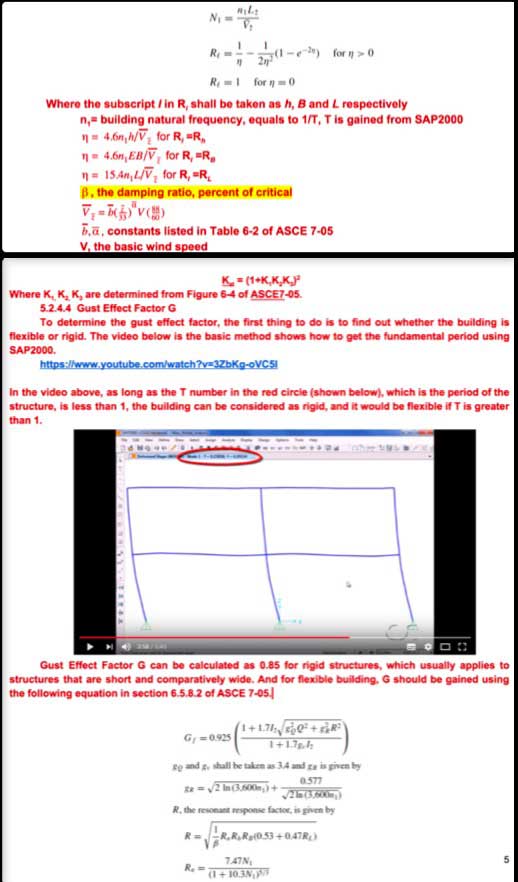

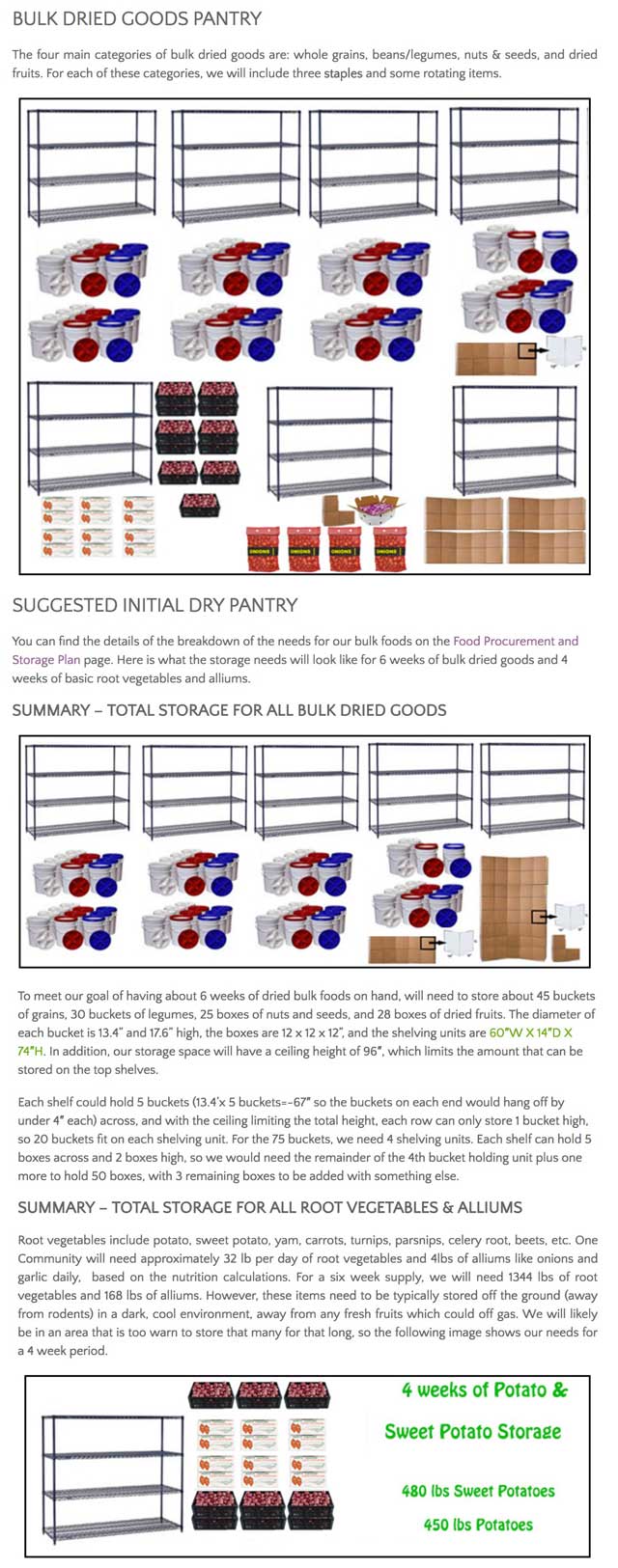
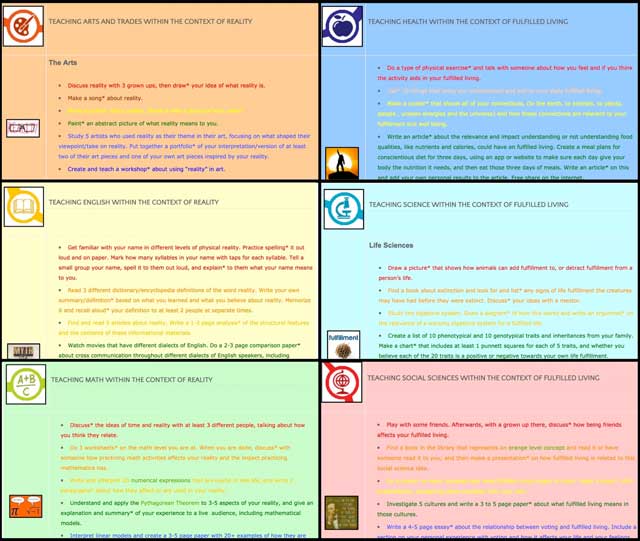
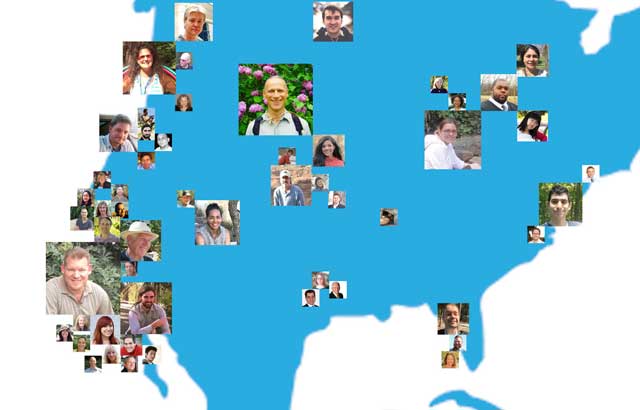




Connect with One Community